Baby Breast Lumps: Causes, Concerns, and What You Should Do
When you notice a lump on your baby's breast, it can understandably cause concern. These lumps are often harmless and linked to hormonal changes or blocked ducts, but knowing what to look for is essential. You might wonder how to differentiate between a benign lump and something that requires attention. Understanding the common causes and recognizing when it's time to consult a pediatrician can make a significant difference. So, what steps should you take to guarantee your baby's health isn't compromised?
Understanding Baby Breast Lumps
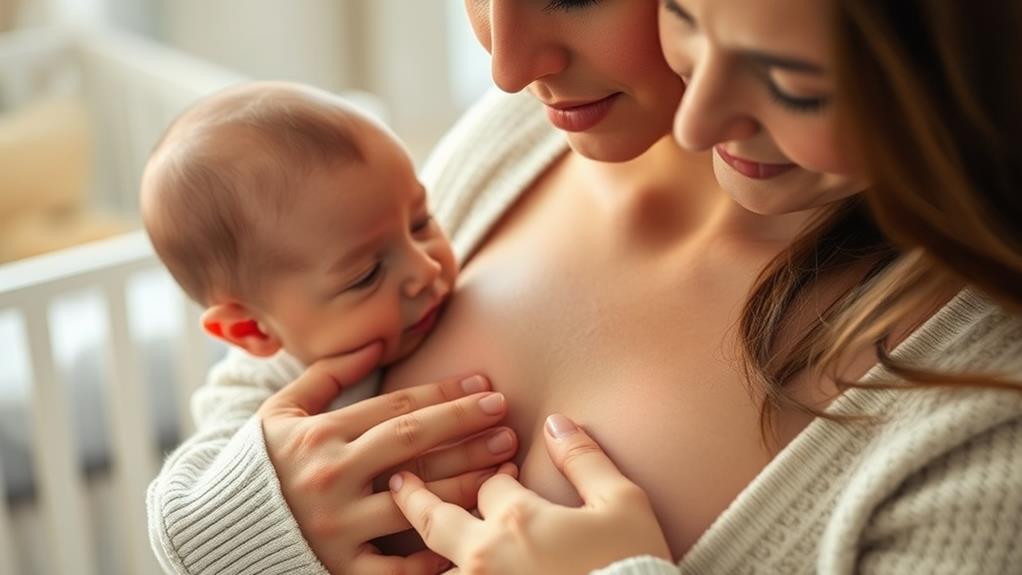
When you notice lumps in your baby's breasts, it can be concerning for any parent. You might think, "What's going on?" and that's completely normal!
First, it's important to remember that baby breast lumps are often harmless. Babies can develop these lumps for various reasons, and most of them are temporary.
Sometimes, it's just the result of hormonal changes, especially in newborns. Their tiny bodies are adjusting to life outside the womb, and a little bump here and there can happen. It might look alarming, but it doesn't mean something serious is wrong.
Of course, it's always a good idea to keep an eye on them. If the lumps seem to grow or change, or if your baby seems uncomfortable, you should definitely reach out to your pediatrician. They're the experts and can help you understand what's happening.
Common Causes of Breast Lumps
A variety of factors can lead to breast lumps in babies, and understanding these common causes can help ease your worries.
One of the most typical reasons is hormonal changes. Just like adults, babies can experience shifts in hormones, especially after birth. This can cause some temporary lumps, often referred to as "witch's milk." Sounds spooky, right? But it's perfectly normal!
Another cause could be a blocked milk duct. If your baby's feeding isn't quite going as smoothly as it should, a milk duct might get clogged. This can create a lump, but usually, it resolves itself with a little time and patience.
Infections can also lead to lumps. A mild infection might cause swollen lymph nodes, and while it might sound alarming, your baby's immune system is pretty resilient.
When to Seek Medical Advice
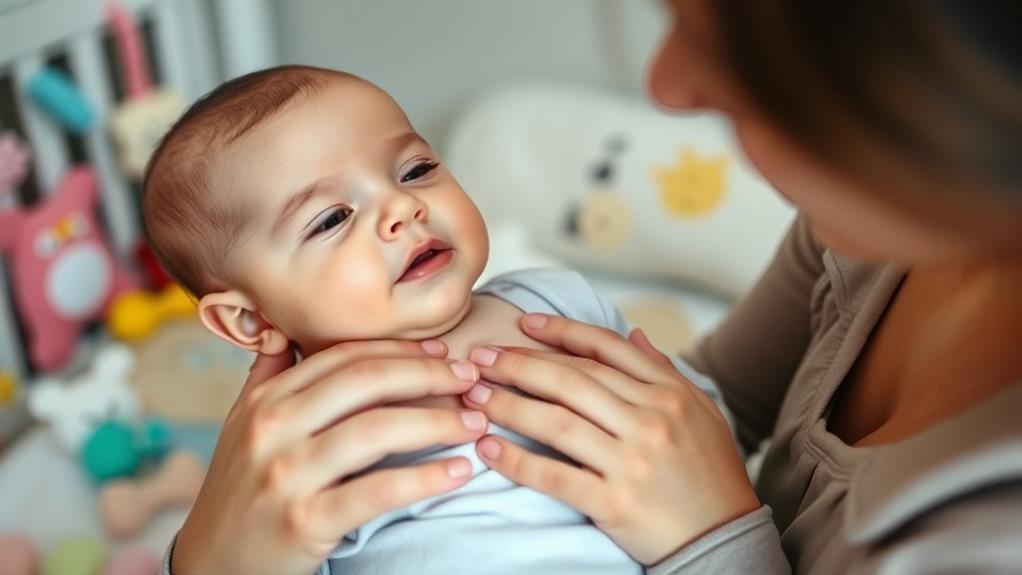
Knowing when to seek medical advice about breast lumps in your baby can be essential for peace of mind.
If you notice a lump that feels hard, doesn't go away after a few weeks, or seems to be growing, it's definitely time to call the doctor. You're the expert on your little one, and if something doesn't feel right, trust your instincts.
Also, if your baby seems uncomfortable or fussy, or if they develop a fever, don't hesitate to reach out to a healthcare professional. It's better to be safe than sorry!
Sometimes, a lump might be accompanied by other signs, like redness or swelling, which could indicate a problem.
If you see anything unusual, don't wait around.
Potential Concerns for Babies
Breast lumps in babies can occasionally raise concerns for parents, as they might signal underlying issues. While many lumps are harmless, it's natural to worry. You might wonder if your little one is experiencing something serious, but most of the time, it's just a part of their development.
One common cause is hormonal changes, which can create temporary lumps that usually go away on their own. Sometimes, a lump might be a clogged milk duct or even a benign cyst. It's a bit like when you find a weird sock in the laundry—something unexpected but not always alarming!
However, you should keep an eye on the lump. If it grows, changes shape, or is accompanied by other symptoms like fever or redness, it's time to reach out to your pediatrician. They can help you figure out what's going on.
Safety of Beauty Practices
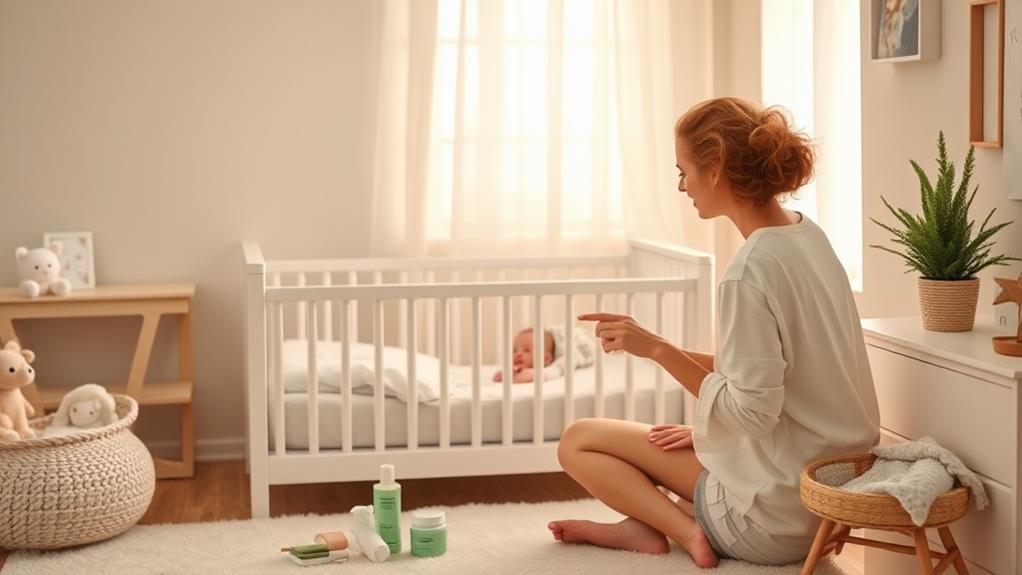
When it comes to beauty practices for new parents, safety should always be a top priority. You might be tempted to try that new skincare routine or nail polish, but it's important to think about what you're using. Babies are sensitive, and they can react to strong chemicals, fragrances, or even the residue you might bring home on your hands.
Start by choosing products labeled as "baby-safe" or "hypoallergenic." These are gentler and less likely to cause irritation. Also, make sure to check for any allergens if you're using anything new. You wouldn't want a little one to have a sneezing fit because of your fancy face cream, right?
If you're considering more intense beauty treatments, like hair dye or facials, it's wise to wait until you're done breastfeeding. Some ingredients can pass through your skin and into your milk, and that's a no-go!
Impact of Hormones During Pregnancy
Hormones during pregnancy can create a whirlwind of changes in your body, and understanding their impact is essential. As your body prepares for a baby, hormones like estrogen and progesterone ramp up. These hormones can lead to breast tissue changes, causing lumps that might seem alarming.
Don't panic, though; it's often just a natural part of your body adapting to this exciting journey!
You might notice your breasts becoming tender, larger, or even lumpy. This is due to the development of milk ducts and glandular tissue, which is all part of your body getting ready to nourish your little one. It's like your breasts are throwing a party to welcome the baby, and they're just a bit too excited!
While it's normal to feel concerned, most breast lumps are harmless and will resolve after pregnancy or breastfeeding.
However, if you notice any changes that worry you, it's a good idea to check in with your doctor. They're there to help, and getting answers can ease your mind.
Home Remedies and Care Tips
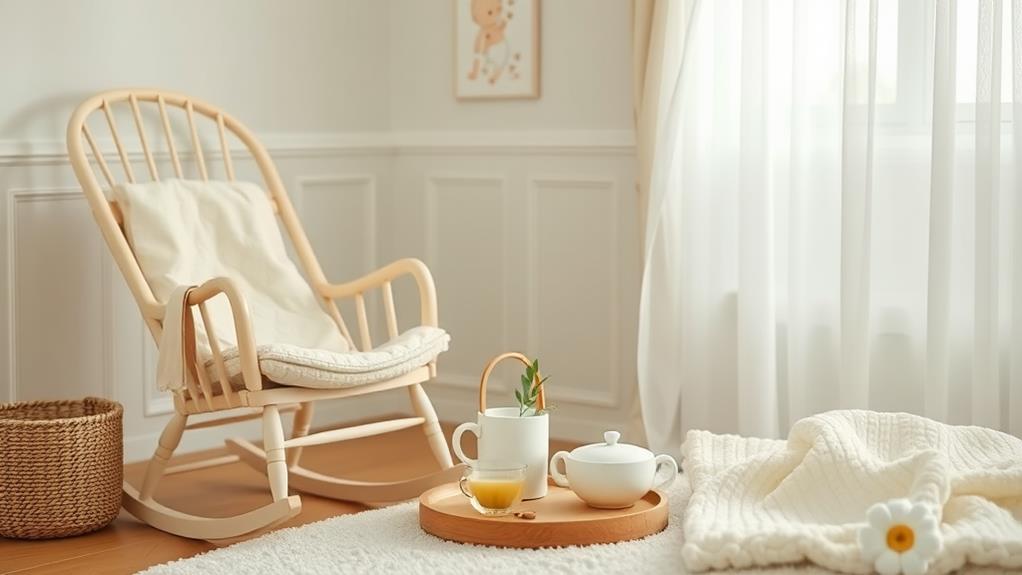
Managing breast lumps during pregnancy can be made easier with some simple home remedies and care tips.
First off, warm compresses can feel like a hug for your breasts. Just soak a clean cloth in warm water, wring it out, and apply it to the lump for about 15 minutes. This can help ease discomfort and promote circulation.
Next, don't underestimate the power of a good massage. Gently massaging the area can help break up any blockages and improve fluid flow. Just be sure to be gentle—you're not trying to win a wrestling match!
Staying hydrated is also super important. Drinking plenty of water can help keep your body balanced and may even aid in reducing swelling.
And let's not forget about comfy, supportive bras. They can make a world of difference, offering the support you need while keeping things cozy.
Lastly, keep an eye on your diet. Foods rich in omega-3 fatty acids, like fish and nuts, can be beneficial.
Professional Treatment Options
If you're dealing with persistent breast lumps during pregnancy, seeking professional treatment options is essential. You might think, "Do I really need to see a doctor?" Yes! It's always better to be safe than sorry, especially when it comes to your health and your baby's.
First, schedule an appointment with your healthcare provider. They'll likely start by examining the lumps and asking about your symptoms. Based on what they find, they might recommend imaging tests like an ultrasound, just to get a clearer picture.
In some cases, you may need a biopsy to rule out any serious concerns. Don't worry; it sounds scarier than it is! A healthcare professional will guide you through the process and explain everything.
If there's an underlying issue, your doctor will help you create a treatment plan that works best for you. They might suggest medication or other therapies to alleviate any discomfort.
Supporting Your Baby's Health

Taking care of your health during pregnancy is crucial not just for you, but also for your baby's well-being.
When your baby arrives, supporting their health becomes your top priority. You'll want to guarantee they're getting the right nutrition, and that means breastfeeding if you can. Breast milk is like a superhero for your little one—it's packed with nutrients and antibodies to help them fight off germs.
Keep an eye on any lumps in your baby's breasts, too. These are often harmless, but they can sometimes signal something needing attention. Regular pediatric check-ups are critical, so don't skip those appointments! Your doctor can help you understand what's normal and what isn't.
Also, make sure your baby gets plenty of cuddles and love. Did you know that skin-to-skin contact can boost their immune system? It's true! Plus, it helps you bond.
As your baby grows, introduce a variety of healthy foods. Think of it like creating a colorful plate of health!


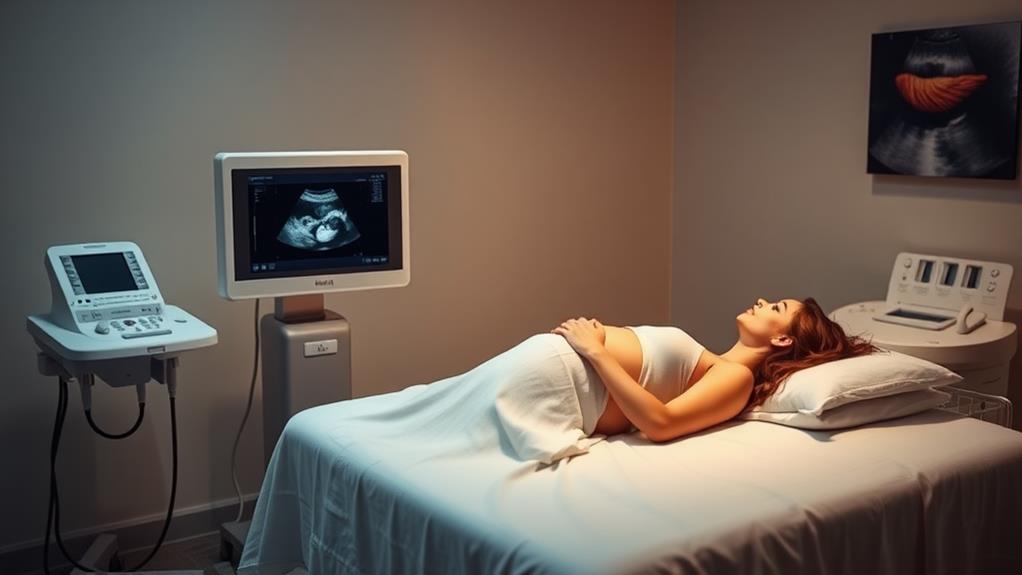
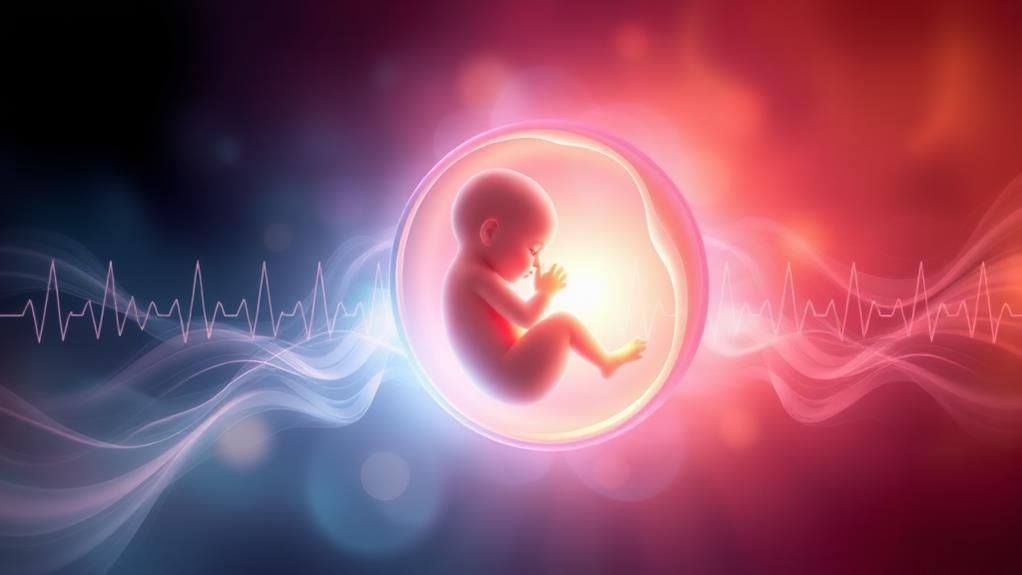









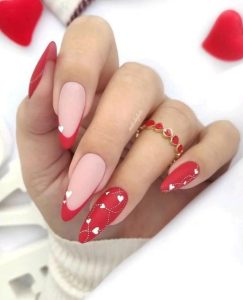
Post Comment